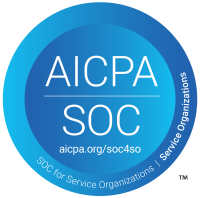View Sale Announcement Detail


Archived news

If the Consumer Financial Protection Bureau (CFPB) were a human, it wouldn't even be considered an adult at this point. That's because the CFPB has only been around since July of 2011. Created in the wake of the Great Recession of 2008-2009, the CFPB was tasked with protecting the American consumer from perceived excess fees being charged in financial transactions. As interesting as that mission is, the average person is blissfully unaware of what the CFPB does, or that it even exists. It is an agency that often flies under the radar for most, but it is important to understand that the agency is making moves at this time that will broaden its overall powers.
Rohit Chopra is the director of the Consumer Financial Protection Bureau, and he is building powerful influence over other government agencies that regulate various aspects of consumer finance. At just 40 years old, Chopra has already set about figuring out how to find old laws and regulations that he may use to further advance his agenda within the department. He has put some of his former staffers and close professional connections in positions of considerable power at other agencies. He is also not afraid to use tactics that are viewed by some as too extreme for a government bureaucrat. Chopra doesn't care, he just wants to advance his agenda in the best ways that he sees fit.
One thing that Chopra is either credited or vilified for (depending on your prospective) is how he seeks to take a more adversarial tone toward financial firms and big banks than previous administrations did. To help accomplish this, he has done the following:
These three things have made the CFPB of today a lot more feared than it was before. It has also meant that the agency is gaining more power and influence in Washington and throughout the entire country.

Chopra was quick to take advantage of the fact that his role provides him access to a Federal Deposit Insurance Corporation (FDIC) seat. Typically, this has been more of a ceremonial role, but Chopra saw an opening to remove the current Republican chairwoman and give himself the power to redirect the FDIC's efforts toward Democratic priorities.
This move has put the FDIC in a position of making it more difficult for large banks to merge with one another, work with the banks on making improvements to the loans issued to low-income communities, and even make banks take the threat of climate change into consideration when making a loan.
Needless to say, this is a major power swing compared to what the FDIC looked like before these moves were made. It is quite clear that Chopra has put his priorities on getting things done while in the position of power that he is in right now.
When asked about why he takes the approach that he does, Chopra simply points back to the failures of previous administrations at the Consumer Financial Protection Bureau (and other government agencies) to protect the American consumer from the damage that is often brought upon them as the result of events such as recessions. The Wall Street Journal reports the following:
He pointed to the housing-market crash 15 years ago as a formative event demonstrating how regulatory complacency can hurt average Americans, saying, "I don't want to be that failed regulator."
Some certainly applaud him for these efforts and for taking a tougher approach to regulation than what others have been willing to do in the past. However, not everyone is as tickled about what he is doing. Some say that he is overly combative on purpose as a means of generating headlines for himself. They see him as nothing more than a self-serving bureaucrat who is attempting to amass more and more power for himself while he has the chance.
Despite this, he continues to push forward with his agenda and his tactics. For example, he has put pressure on the banks to eliminate or scale back fees (such as overdraft fees). He feels that such fees are "junk fees", and that they serve no purpose other than to harm the American consumer for the benefit of the big banks. Thus, he feels justified in taking a stand against such tactics.
Regardless of how you feel about Chopra's approach or policies, there is no question that he is getting results from doing things the way he is. Perhaps there are a few more headlines on the CFPB than it is used to receiving, and that might make some people uncomfortable, but the agency is also shifting into a more powerful position than it had before, and Chopra is who you can credit for that.
For more details on how Chopra has changed the Consumer Financial Protection Bureau and what might be next, please contact us to get the latest information.







